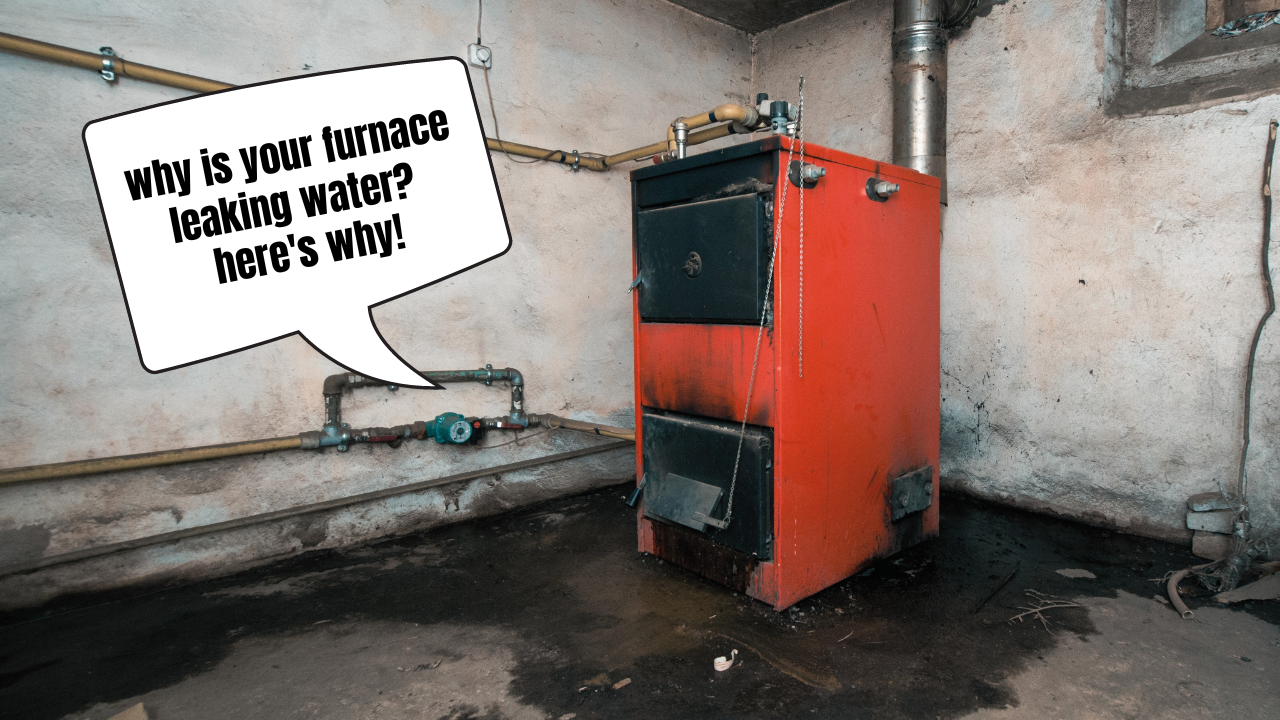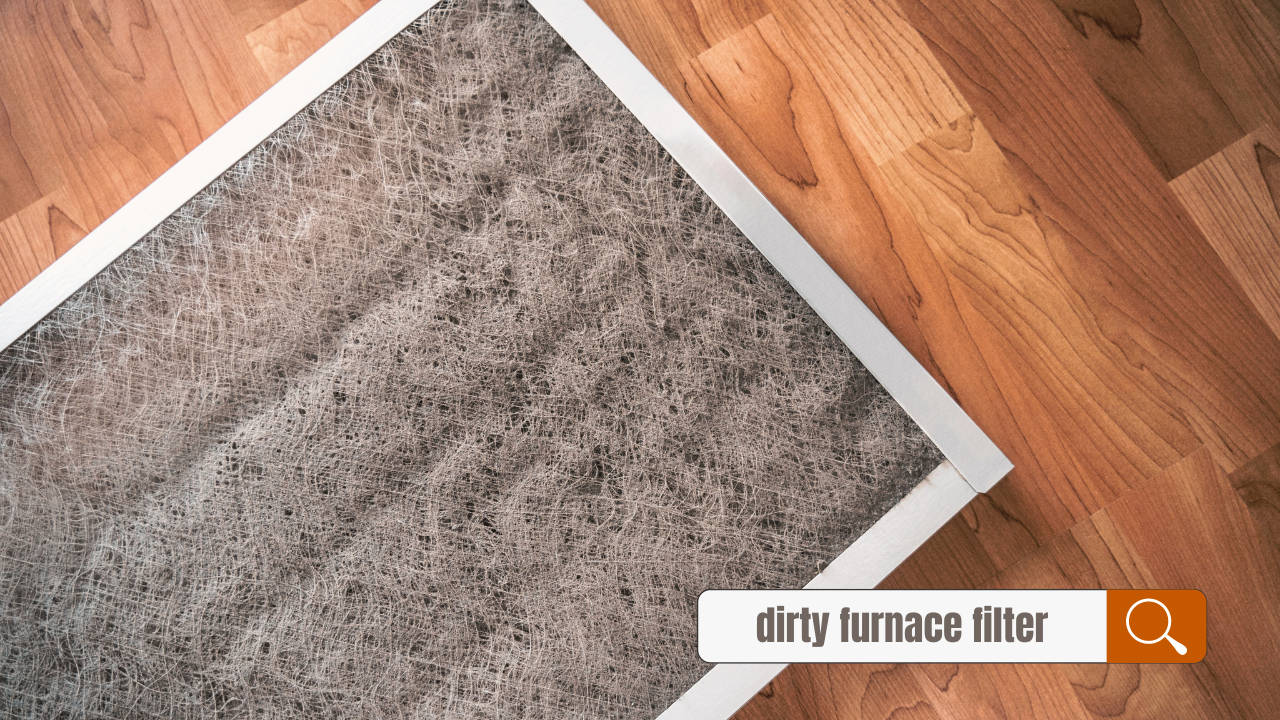Is your furnace leaking water? We know this can be a truly frustrating experience, but don't worry– you're not alone. Many homeowners in the country also experience the same furnace leaking water problems.
So, if this issue is becoming more frequent, we're here to help you clean up the mess and find the root cause to fix it. That means you won't have to deal with water leaks anymore! Let's start with the most common culprits associated with a furnace leak. (Related: Why Is My Furnace Leaking Water? Let’s Figure It Out)
6 Common Reasons Behind Furnace Leaking Water

So, why is there water leaking from the furnace? Here are some of the most common reasons why this problem persists:
Humidifier Leak
Many homes attach a humidifier straight to the furnace to add moisture to the air. But if there's a leak in the system, the water may only drip to the floor. This usually happens when there's a broken part or clog in the humidifier.
Homeowners who get routine maintenance from a professional technician can detect leaking humidifier issues before it gets out of hand. This problem can lead to extensive damage to your furnace when overlooked, damaging the floors and walls and contributing to mold growth. (Yikes!)
Condensation Leak
A condensation leak is a common culprit if your furnace leaks water. Many homeowners we've talked to report the very same reason. Modern furnace models are designed to have high-efficiency ratings, with two heat exchangers to function correctly. This may lead to condensation– where moisture escapes the home through the pipes. Usually, the water will go to a floor drain. If pipes break or clog, your system may leak water.
Clogged Filter

Another culprit why water is leaking from your furnace can be related to a dirty or clogged furnace filter. Yes, these filters are designed to clean the air of impurities and improve the air quality– but it's natural to deal with debris build-up over time.
This leads to restricted airflow in the furnace coil, which may sometimes result in a freezing coil. Ensure to assess your furnace filter regularly and replace it when needed if you want to avoid costly problems because of extensive damage.
Plumbing Leak
Sometimes, the water leak from your furnace may not come directly from the heating system. Instead, it may be from the plumbing.
While this may not turn out to be a major plumbing issue, any plumbing problem is something that shouldn't be taken lightly. This means you have a clogged or damaged plumbing pipe at home. If the plumbing pipes are situated around the furnace, it's easy to mistake a plumbing leak for a leak in your furnace.
Leaking AC Unit
Those who live in temperate climate regions may use an AC and furnace at the same time. An air conditioner's condensation pan is filled up with water at some point– and when this pan gets full, the water may overflow into the furnace.
Sometimes, this makes it look like your furnace has a water leak problem, but it may just be the condensation pan dripping water into it. Always ensure to empty the pan if you're frequently using your AC (along with the furnace) to avoid seeing water leaking from the furnace when the AC is on.
Heat Exchanger Issue
Once you see water leaking around your furnace, another culprit may be a present heat exchanger problem. Heat exchangers are designed to transfer heat through the system effectively, producing condensation in the process. Sometimes, although relatively rare, this may lead to a water leak.
The best thing to do is inspect the heat exchanger for leaks. But one thing to note is that this repair may come at a cost. In some cases, you may need to replace the heat exchanger. Let it be assessed by an HVAC professional to narrow down the best course of action to take.
What to do if Your Furnace is Leaking Water
The moment you notice your furnace is leaking water– there’s no need to panic. Start by keeping your cool and powering through the situation with the following steps:
The Right Way to Deal with a Furnace Leaking Water
Ultimately, the moment you spot water pooling around your furnace can be problematic. If you're lucky– the problem at hand may not be as severe as it look As long as you work on it at once! The longer you delay addressing the issue, the worse it could be for your furnace system and total repair costs.
We've discussed the different reasons for leaking furnace water, so we hope you know exactly what to do the next time you deal with this issue!
Frequently Asked Questions (FAQs)
What are the most common causes of furnace leaks?
The most prevalent causes of furnace leaks can be condensation (common among high-efficiency furnaces), clogged condensation tubing, a break in the condensation line, or pump-related issues. Humidifier problems may also lead to a furnace leaking water, as a clogged drain or filter may cause the furnace to produce excessive moisture.
Is furnace leaking water dangerous?
Yes, given that water damage can occur over time. While a leaking furnace doesn't pose any immediate risk, it will mainly affect your daily living as you know it. When overlooked, you will be dealing with uncomfortable temperature levels at home and costly repairs. Also, dripping water may lead to rust. This can decay the working parts of the furnace system– which may cause the furnace to break down completely.
What can I do when I notice the furnace leaking water?
Once you notice water leaking from the furnace, it would be best to act on the matter at once. Keep in mind that it may lead to thousands in repair costs if you overlook the situation. For starters, here's what you can do:
The longer you wait to clean up the water or address the furnace leaking problem, the worse the water damage may be before you know it.
